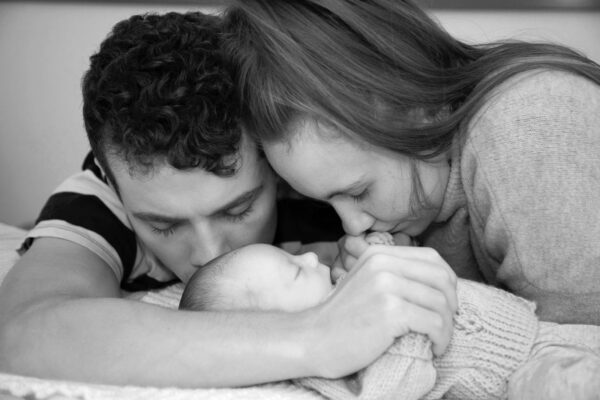Today, the Care Quality Commission released its National Review of Maternity Services in England 2022-2024, warning that preventable harm is at risk of becoming ‘normalised’.
The Review has confirmed that the problems are not isolated to just a few NHS Trusts, they are widespread across the country, with 65% of maternity units judged to be failing on the issue of safety.
Whilst this Review will be shocking to many, it is simply a confirmation of what the many families who have faced harm in our hospitals will know already – poor maternity care is widespread and systemic, and urgent change is required.

Our birth injury team are currently acting for more than 170 families with children that have suffered life-changing brain injuries at birth and see examples of substandard maternity care all the time, occurring in hospitals all over the country. We hear stories of mothers not being listened to and being dismissed by midwives and doctors, only to then experience serious complications that would have otherwise been avoided. Our experience is that a lack of adequate staffing or competency routinely puts mothers and babies at undue risk of harm. Many families have approached us for support following traumatic deliveries including where a lack of proper attention to a baby’s heart rate in labour has led to avoidable delays in delivery and the baby being starved of oxygen.
When reports like this are published, the stories that often don’t get heard are those from families that are still living with the consequences of this poor maternity care. The children that have been left with permanent brain injuries, causing lifelong disabilities such as cerebral palsy, who need daily care and equipment at a cost of millions of pounds. The mothers that can no longer work due to the psychological or physical impact of a traumatic birth. The fathers and birthing partners that suffer equal trauma and yet cannot be compensated as the law deems them to be ‘secondary’ victims.
“As a first time father to be, I whole heartedly put my faith in the professionals that were looking after my wife and unborn child. I trusted them completely, even when I had a gut feeling that things weren’t right, I didn’t follow these instincts, because ‘what do I know, they know best! A significant delay in getting my partner to theatre meant that my daughter was subjected to a long period on oxygen starvation, resulting in her suffering from substantial brain damage and in her being diagnosed with cerebral palsy. She now requires round the clock care, expensive equipment and a great deal of professional intervention, all of which have taken a great toll on us as parents. However this pales into insignificance when we think about the life she will lead instead of the life she should have had. Had the right care been taken at her birth, all of this could have been avoided.”
Parent of CL Medilaw Client
The cost of these harms to those affected is immeasurable. Financial compensation can only go so far in repairing what has been destroyed or damaged by substandard maternity care. To compound the harm, we all too often see a culture of defensiveness and delay when claims are made. NHS Trusts often fail to admit in the first instance when substandard care has occurred, or deny that such care has caused injury, even when the evidence against them is damning. Families are left to seek support through litigation to get the answers, justice and compensation they deserve, at the same time often trying to care for their injured child or recover from their own trauma.
We welcome the CQC’s Review but this is simply confirmation of what we and the families we represent already know. It follows several other reports of its kind over the years and yet many mothers and babies are still being harmed needlessly. What will be done to bring about real change is the key question.


“I have seen first-hand, and over many years, the impact that the maternity crisis is having on babies and families. What often gets overlooked in these reviews is the life-long impact that the serious harm caused to babies and mothers during birth can have. Following a traumatic birth, harmed babies and women are left with significant and costly ongoing care and medical needs which puts pressure on social services or the NHS, with these families often left fighting to have their basic needs met. Investing in meaningful and effective solutions to resolve the crisis in maternity care is imperative not just for these families, but also for society as a whole.”
Laura Cook, Partner in our birth injury team
Our leading birth injury team specialises in supporting families whose babies have suffered harm due to poor maternity care across the country.
If you need advice or to speak to someone about what happened during your own birth, please contact us to speak one of our expert birth injury solicitors.